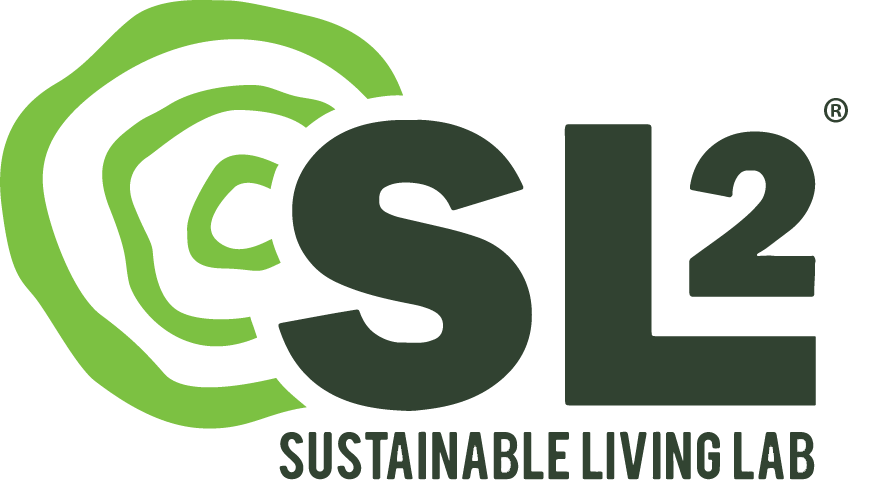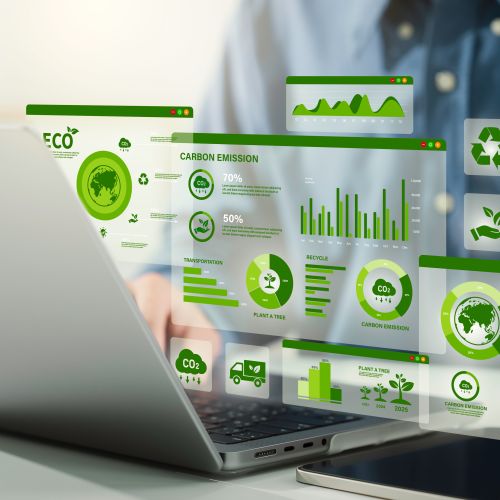Transforming Small and Medium Enterprises: Strategic Sustainable Development
- Environmental, Social & Corporate Governance
- Innovation & Business Improvement
This programme is conducted on-campus.
To use your SkillsFuture Credit, please submit your claim through our payment portal. Do not submit the claim manually via the SkillsFuture page. Please refer to our step-by-step guide here.
5 days
Weekdays (9am - 6pm)
Who Should Attend
- Professionals and business owners who are keen on deepening their knowledge and develop strategies in corporate sustainability for Small & Medium Enterprises
Overview
Small and Medium Enterprises (SMEs) are starting to feel the pressure from clients, consumers and new policies to be more sustainable and develop plans to reduce their carbon footprint. This programme provides frameworks and guides for SMEs to redefine their business vision to include sustainability goals and kickstart their sustainability journey. Equip yourself with the understanding of sustainability concepts to develop sustainability agendas. Convey your sustainability practices and strategies to your stakeholders and begin applying steps to curate your sustainability initiative to stay ahead of local and regional competition.

Sustainable Living Lab (SL2) is a sustainability consultancy and innovation lab founded in Singapore in 2011, specialising in creating and implementing rapidly evolving, impactful solutions. Their expertise lies in leveraging technology, as a tool for sustainability, with a strong emphasis on a community-driven approach to implementation.
SL2's practical yet ambitious approach has helped them build a client base across governments, international development organisations, leading multinational corporations (MNCs), and small to medium-sized enterprises (SMEs).
Headquartered in Singapore, they have established a strong presence in Asia and beyond, with strategically located offices in India, Indonesia, and the United States enabling them to effectively engage, understand, and tailor their solutions to specific contexts.
Learning Objectives
- Empower organisations with the confidence, skills and frameworks to start their sustainability initiative
- To equip decision-makers with the relevant knowledge points, tools and frameworks to start their sustainability journey in their organisation
- To enable decision makers to set their sustainability roadmap for their organisations
- To network with like-minded organisations and learn from other organisations
Topic/Structure
Topic 1: Understanding The Core Concepts Of Corporate Sustainability
Learning Objectives
- Identify the purpose of corporate sustainability
- Articulate how sustainability plays a role in daily business operations
- Define the concepts and definition of sustainability terminologies and lingo
Topics and Structure
- Introduction to key Corporate Sustainability concepts and approaches such as Environmental, Social, and Governance (ESG), United Nations Sustainable Development Goals (SDGs), and Greenhouse Gas Emissions (GHGs).
- Key policy and regulatory developments locally, regionally, and internationally in the space of Sustainability & Climate Change.
- Identify different sustainability reporting standards
- Review the key components and objectives of the Conference of Parties (COP)
Topic 2: Economics Of Sustainability
Learning Objectives
- Identify the economic benefits of adopting sustainable practices in business operations
- Evaluate sustainability business models for best sustainability practices
- Demonstrate the implementation of circular principles
Topics and Structure
- Comprehend the concept of green finance and its role in supporting sustainable business practices
- Application of circular business models using the ReSOLVE framework
- Addressing issues and challenges of supply chain transparency and the potential social, environmental and governance risks it possesses across the value chain
Topic 3: Sustainability In Practice
Learning Objectives
- Evaluate the approach of other organisations in implementing sustainability initiatives
- Identify potential areas of improvement in their own organisation’s sustainability practices
- Network and establish relationships with other sustainability professionals
Topics and Structure
- Visit organisations to understand their sustainability initiatives and practices put in place in their organisation
- Interactive discussion of the opportunities and challenges of sustainability initiatives implemented by sustainability professionals
- Site visits to 3 to 4 Small & Medium Enterprises in the sustainability field
Topic 4: Building Your Sustainability Strategy
Learning Objectives
- Demonstrate the basic principles and methods of Futures Thinking
- Identify the relevance of Futures Thinking in today’s dynamic and unpredictable business environment
- Apply Futures Thinking methods when developing business strategies
- Construct scenarios, forecasts and visions related to sustainability problems over a ten year period
Topics and Structure
- Establish a system to identify sustainability-related signals and trends using the STEEPV framework
- Identify and assess Driving forces using Causal Layered Analysis (CLA)
- Construct scenarios using 2x2 Framework and 4 Archetypes Method
- Guest speaker to share on the application of Futures Thinking within a SME
Topic 5: : Measure And Set Your Organisation’s Baseline
Learning Objectives
- Identify business relevance and stakeholder value
- Execute GHG emissions measurement and reporting in accordance with relevant standards, protocols and regulations
- Develop strategies and actions to reduce GHG emissions for a low carbon future
- Identify key environmental, social and governance risk and opportunities for your organisational sustainability strategy
Topics and Structure
- Identify stakeholders involved and sustainability indicators to measure using Materiality Assessment
- Overview of GHG emissions and differentiation between Scope 1, 2, and 3
- Develop GHG inventories and best practices for GHG reporting and disclosures
- Take home assignment:
- Conduct your own organisational audit on Water, Waste and Energy
Topic 6: Sustainability Reporting And Governance
Learning Objectives
- Assess between the various reporting standards and recognise standards that are suitable for your organisation’s operations
- Evaluate the key principles and practices of sustainability governance
- Effectively communicate sustainability performances and impacts to external stakeholders
Topics and Structure
- Overview of sustainability reporting standards and the importance to organisations and stakeholders
- Best practices to effectively communicate sustainability performances externally and prevention of greenwashing
- Application of sustainability reporting and governance practices in organisations
Topic 7: Internal Communication And Policies
Learning Objectives
- Demonstrate effective internal communication of sustainability strategies within your organisation for employee engagement
- Design an inclusive workplace and foster a sustainability culture within your organisation
Topics and Structure
- Develop and implement an effective communication strategy using a communication framework
- Establish sustainability initiatives for employee engagement and alignment to organisational goals
- Overview of diversity, equity and inclusion in the workplace and best practices for an inclusive work environment
Assessment
Participants will be assessed based on their in-class participation and presentation.
Participants are required to attain a minimum of 75% attendance and pass the associated assessment in order to receive a digital Certificate of Completion issued by SMU Academy.
Calculate Programme Fee
Fee Table
| EMPLOYER-SPONSORED | |||
|
PARTICIPANT PROFILE |
SELF-SPONSORED |
SME |
NON-SME |
|
Singapore Citizen < 40 years old Permanent Resident LTVP+
|
$1,635 (After SSG Funding 70%) |
$635 (After SSG Funding 70% |
$1,635 (After SSG Funding 70%) |
|
Singapore Citizen ≥ 40 years old |
$635 (After SSG Funding 70% |
$635 (After SSG Funding 70% |
$635 (After SSG Funding 70% |
|
International Participant |
$5,450 (No Funding) |
$5,450 (No Funding) |
$5,450 (No Funding) |
All prices include 9% GST
Please note that the programme fees are subject to change without prior notice.
Post Secondary Education Account (PSEA)
PSEA can be utilised for subsidised programmes eligible for SkillsFuture Credit support. Click here to find out more.
Self Sponsored
SkillsFuture Credit
Singapore Citizens aged 25 and above may use their SkillsFuture Credits to pay for the course fees. The credits may be used on top of existing course fee funding.
This is only applicable to self-sponsored participants. Application to utilise SkillsFuture Credits can be submitted when making payment for the course via the SMU Academy TMS Portal, and can only be made within 60 days of course start date.
Please click here for more information on the SkillsFuture Credit. For help in submitting an SFC claim, you may wish to refer to our step-by-step guide on claiming SkillsFuture Credits (Individual).Workfare Skills Support Scheme
From 1 July 2023, the Workfare Skills Support (WSS) scheme has been enhanced. Please click here for more details.
Employer Sponsored
Enhanced Training Support for SMEs (ETSS)
- Organisation must be registered or incorporated in Singapore
- Employment size of not more than 200 or with annual sales turnover of not more than $100 million
- Trainees must be hired in accordance with the Employment Act and fully sponsored by their employers for the course
- Trainees must be Singapore Citizens or Singapore Permanent Residents
- Trainees must not be a full-time national serviceman
- Trainees are eligible for ETSS funding only if their company's SME status is approved prior to the course commencement date. To verify your SME's status, please click here.
Please click here for more information on ETSS.
Absentee Payroll
Employers who sponsor their employees for the course may apply for Absentee Payroll here. For more information, please refer to:
AP Guide (Non-SME Companies)
Declaration Guide (SME Companies)
Intake Information
Next Intake: To be advised
*Registration will close 5 calendar days before the course start date, or once the class is full, whichever comes first.






